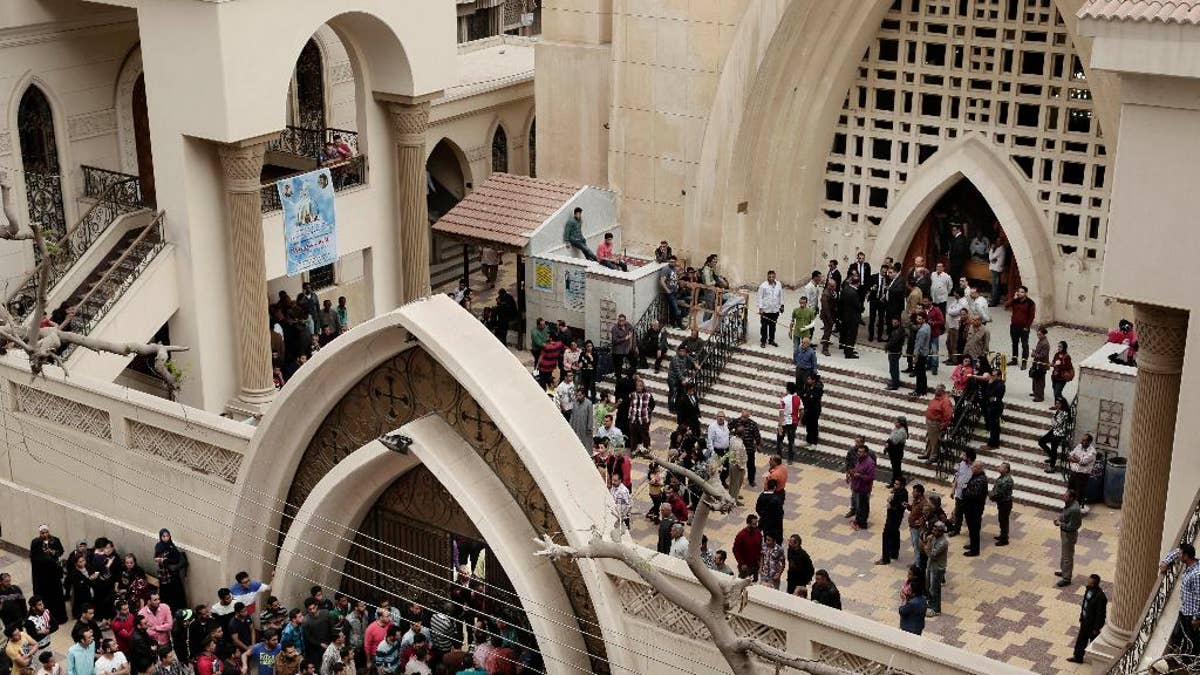
Sunday, April 9, 2017: People gather outside the St. George's Church after a deadly suicide bombing, in the Nile Delta town of Tanta, Egypt. (AP Photo/Nariman El-Mofty)
A man suspected in one of the two Palm Sunday bombings of Coptic Christian churches in northern Egypt has turned himself in to authorities.
Mahmoud Mohamed Ali Hussein is believed to have played a role in the bombing of St. George Church in the city of Tanta that killed 27 and injured 78, according to Egyptian newspaper Al-Ahram.
He turned himself in at a prosecutor’s office in the Qena governorate where most of the suspects are believed to be from.
Authorities said they have arrested 13 members of a terrorist cell that was plotting attacks against more churches in the country, according to the newspaper.
A second explosion – which Egypt’s Interior Ministry says was caused by a suicide bomber who tried to storm St. Mark's Cathedral in the coastal city of Alexandria -- left at least 17 dead, and 48 injured. The attack came just after Pope Tawadros II -- leader of the Coptic Orthodox Church of Alexandria -- had concluded liturgical services. The cleric was unharmed.
ISIS claimed responsibility for the attacks via its Aamaq media agency, following the group's recent video vowing to step up attacks against Christians, whom the group describes as infidels empowering the West against Muslims.
The blasts came at the start of Holy Week leading up to Easter and just weeks before Pope Francis is due to visit Egypt, the Arab world's most populous country.
In the wake of the attack Egyptian President Abdel-Fattah el-Sissi accused unnamed countries of fueling instability in the country, adding "Egyptians have foiled plots and efforts by countries and fascist, terrorist organizations that tried to control Egypt."
El-Sisi also ordered the immediate deployment of troops to assist police in protecting vital facilities across the country. He also declared a three-month state of emergency.
